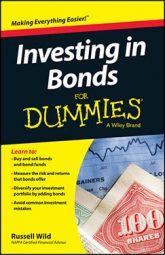The U.S. Federal Reserve has three "magic" powers with which to expand or contract the money supply, or move interest rates. They are open market operations, the discount rate, and reserve requirements:
Open market operations: This term means nothing more than the buying and selling of Treasury and federal agency bonds. When bonds are sold (and the public's money is funneled into government hands), the money supply is tightened, inflation tends to slow, and interest rates tend to rise. When bonds are purchased back (and the public's money is returned), the economy is given a boost and interest rates tend to fall.
The discount rate: This term refers to the interest rate that commercial banks must pay for government loans. The more the banks have to pay, the more they tend to charge their customers, and interest rates tend to rise.
Reserve requirements: The reserve is the amount of money that banks must hold on hand as a percentage of their outstanding loans. The higher the reserve requirements, the tougher it is for banks to lend money, and interest rates tend to rise as a result.

